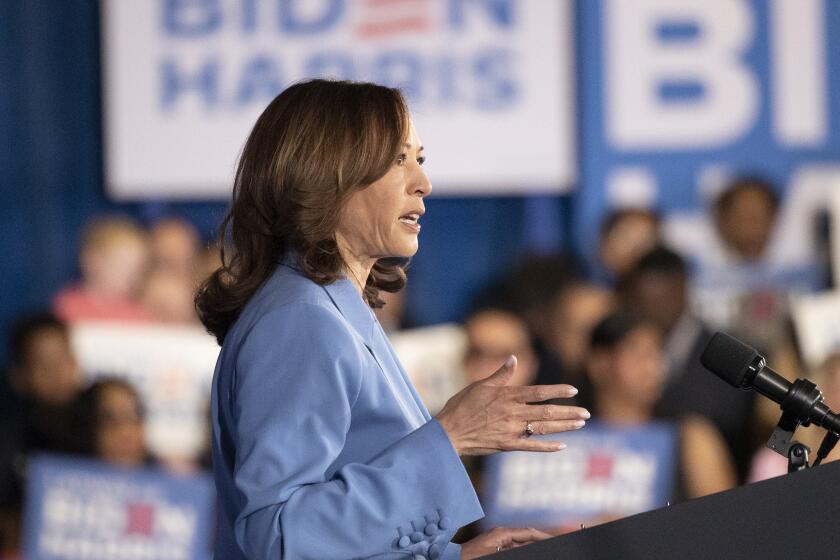Saudis say they far exceeded oil output quota in February
Saudi Arabia produced 9.1 million barrels of oil a day in February, 1 million barrels more than its official output quota as an OPEC member, the Saudi Petroleum Ministry said, part of an effort to calm prices that rose sharply after oil exports from Libya plummeted.
Oil prices were mixed Tuesday — falling 64 cents to $104.38 a barrel in New York but rising $2.88 to $115.94 in London — after the Energy Department reported that U.S. oil supplies had increased more than expected and energy officials sought to reassure markets in the face of continuing unrest in Libya and the Mideast.
Although officials of the Organization of the Petroleum Exporting Countries have said they see no reason to increase exports, the 12-member cartel is producing more than 2.5 million barrels a day over its aggregate quota of nearly 25 million barrels a day, and that number is set to rise, according to a senior Saudi Petroleum Ministry official who spoke on condition of anonymity because he normally doesn’t give interviews, a role reserved for Oil Minister Ali Ibrahim Naimi. Crude oil production from Nigeria and Angola should increase soon, as fields undergoing maintenance and new wells come on stream, the Saudi official said. Iran may also start selling more oil from its stocks, he said.
Part of the jitteriness in the market can be traced to the fact that the Saudis’ production claims, and those of other OPEC members, cannot be confirmed.
“There is no independent reliable, verifiable estimate of production,” said Mehdi Varzi, a London-based oil analyst. Previously, “the Saudis say they’ve raised production, but they haven’t said how much they’ve raised it to or how long they’ll keep it raised.”
Oil production in Libya has fallen by about 1 million barrels, or two-thirds of its daily production of about 1.6 million barrels, according to International Energy Agency estimates. Before fighting broke out between supporters and opponents of Moammar Kadafi, Libya exported most of its oil to European refiners, especially in Italy and Spain. The influx of oil from West Africa would be especially crucial to the Mediterranean refineries, because it most closely resembles the low-sulfur, “light, sweet” crude from Libya.
OPEC accounts for 40% of global oil output, and Saudi Arabia is the world’s biggest oil exporter. Independent analysts have issued estimates claiming that for months now, the Saudis have been gradually selling more than their quota of 8.05 million barrels a day in order to meet rising demand as the global economy recovers. The Saudis are the only producers with significant idle, or spare, oil output capacity, estimated at about 3.5 million barrels a day.
The kingdom has now tapped some of that capacity. But its efforts have barely damped the fear of shortages and financial speculation in oil markets that have driven prices to their highest levels in almost three years.
“The fact that prices are still so high is definitely frustrating,” said the Saudi energy official. “If you look at the balance in the oil market today between supply and demand, the stocks that countries have of oil, it’s definitely better” than before unrest swept the Middle East and North Africa.
Although the kingdom’s economy is almost entirely dependent on oil, the Saudis fear runaway oil prices. They understand that prices over $100 a barrel threaten to sap global economic growth and with it, demand for oil. The country prefers that oil stay between $70 and $80 a barrel, the official said.
Most oil analysts say that the Saudis’ increased output has cooled the market somewhat, pointing to the fall in European prices from $120 a barrel two weeks ago.
“There has been a minor but noticeable impact,” said Holly Pattenden, a London-based oil analyst with Business Monitor International. “The market is being led by fear of potential disruptions than the actual supply situation worsening by the day.”
Worries that unrest could spread to Algeria, another OPEC member, or Saudi Arabia itself have unleashed extreme predictions of oil prices hitting $200 a barrel. A protest is planned in the kingdom Friday, but the political opposition and the government expect turnout to be low.
In raising production, the Saudis have reduced their spare emergency capacity, which makes the oil markets more vulnerable to other shocks.
“The Saudis have raised production, but global capacity has actually been reduced,” said Varzi, an independent oil analyst. “If something else happens — heaven forbid, for example, if something happens in the Persian Gulf — that capacity can dry up overnight.”
Varzi predicted that instability in the Middle East and North Africa would continue to roil markets, even with the Saudis and OPEC exporting more oil.
“At the moment there is no early end in sight,” he said. “We’re in a new world. We have all these analysts saying the price will peak at so-and-so. They don’t know; I don’t know; you don’t know. We don’t know what the next event will be.”
More to Read
Inside the business of entertainment
The Wide Shot brings you news, analysis and insights on everything from streaming wars to production — and what it all means for the future.
You may occasionally receive promotional content from the Los Angeles Times.












